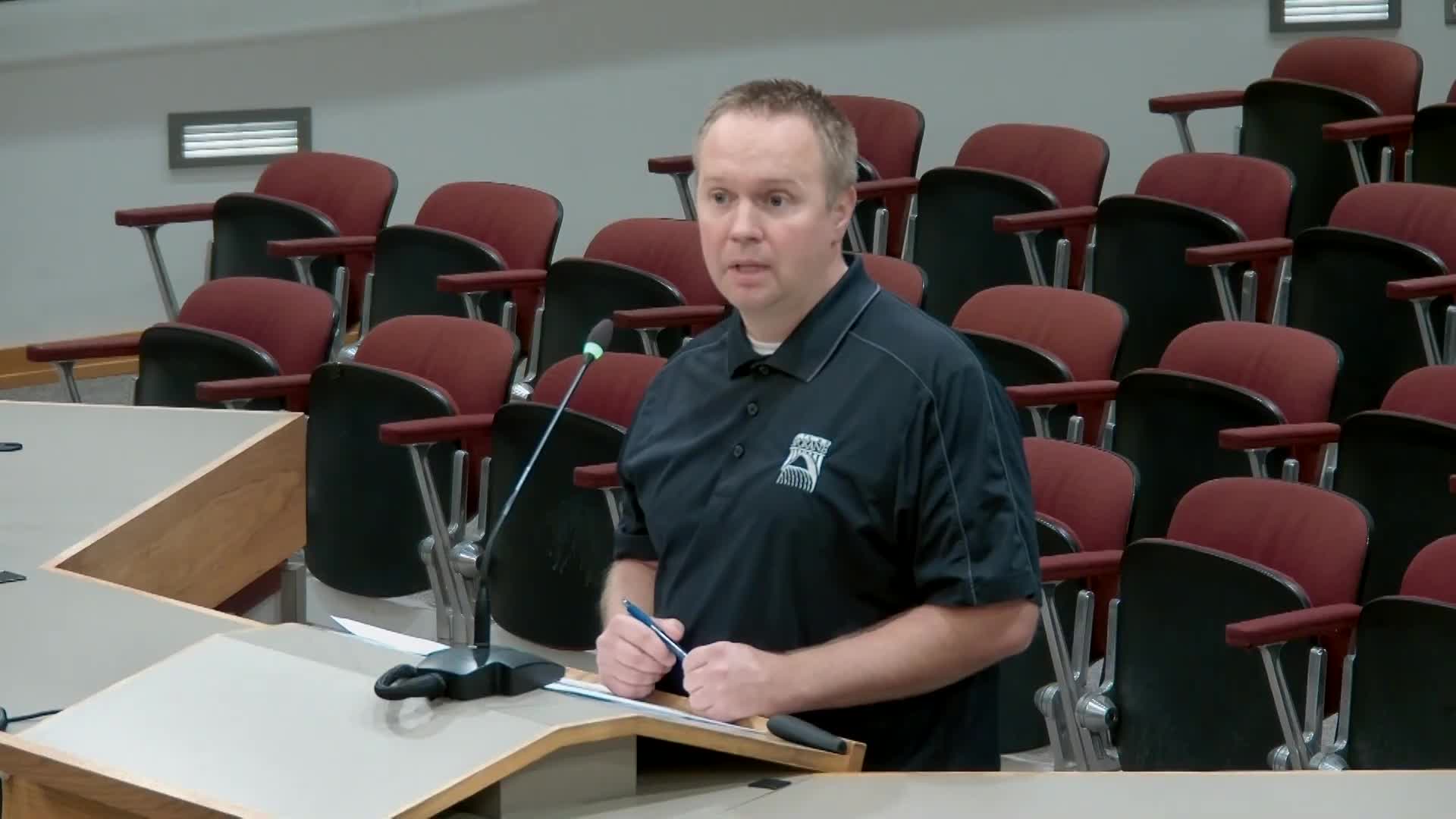Spokane officials pitch commercial parking tax to push surface lots toward redevelopment
Get AI-powered insights, summaries, and transcripts
Subscribe
Summary
City staff proposed a citywide local option transportation tax on commercial parking (12% with a 6% efficient-land-use credit) aimed at incentivizing redevelopment of surface parking lots and generating a dedicated transportation revenue stream. Council members pressed staff on exemptions, downtown impacts and how revenues would be spent.
City officials presented a proposed local option transportation tax on commercial commercial parking Tuesday that would levy a 12% charge on commercial parking transactions, with an efficient land use credit cutting the rate to 6% for lots that meet redevelopment or structured-parking criteria.
The proposal, described by John Snyder, director-level appointee to the proposed Transportation & Sustainability division, would apply citywide and is authorized by Washington state law, which permits cities to impose a commercial parking tax without voter approval and restricts how revenues may be used to transportation-related projects and planning. Snyder said the credit is intended to incentivize conversion of surface lots into housing or mixed-use buildings and to create a dedicated transportation funding stream the city can use for infrastructure projects.
Snyder said the administration views the measure as part of a long-term, cumulative strategy to reverse what he described as past incentives that encouraged demolition of older buildings in Downtown Spokane and replacement with surface parking. "For decades we had this upside-down incentive structure that rewarded folks for tearing down older buildings and putting up surface parking," Snyder said (00:53:10). He said commercial parking lots typically produce lower assessed property values than equivalent development and cited parcels downtown that sold for several million dollars yet remain assessed substantially lower than sale price.
Supporters who testified during the public-comment portion urged the city to move forward. Eric Lowe, identified as a downtown property owner, called the tax "reasonable and long overdue" and commended Mayor Brown's team for preparing the proposal (00:04:29). Kaylee Jackman said surface lots "are wasted opportunities" that could add housing and neighborhood character (00:01:00).
Council members asked detailed questions about the proposal's exemptions, revenue distribution and likely effects on downtown businesses. Proposed local exemptions would include residential parking, student parking and employee parking; the ordinance would rely on the state's existing statutory exemptions and add locally defined ones. Council members raised concerns that broad exemptions (for example, student parking) could significantly reduce projected revenue and that many of the city's paid surface lots are concentrated downtown, meaning the tax could fall heavily on downtown parkers and property owners.
Snyder said the administration is preparing stakeholder outreach and that the city's parking and street funding pressures make a new dedicated transportation revenue stream necessary. He indicated revenues could support large downtown projects (for example, the Spokane Falls Boulevard rebuild) and broader transportation needs but that state law restricts use to transportation-related purposes.
Council members asked whether the city could direct revenues to a defined downtown zone; Snyder said he was open to discussion. Several members also urged targeted stakeholder engagement before any final action. No formal vote or ordinance adoption occurred at the committee meeting.
